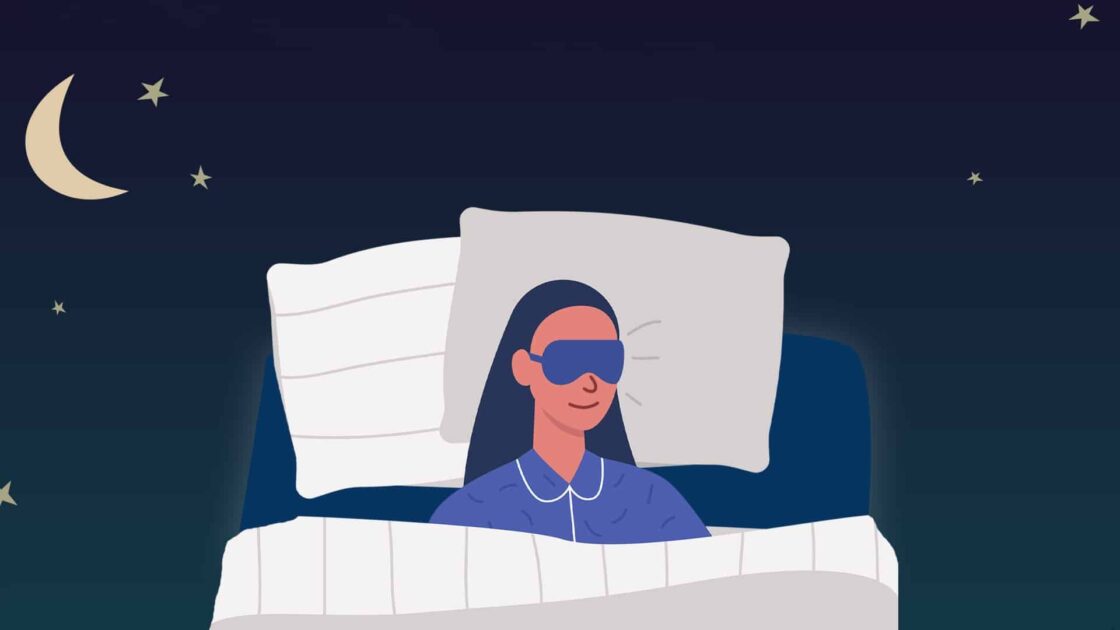10 ways to get a solid night’s sleep
Lose the snooze button with these great tips
Written by spunout
Factsheet
Fact checked by experts and reviewed by young people.

We’ve all had sleepless nights of tossing, turning and clock watching. It’s not much fun, and can be pretty exhausting, but it’s tolerable for a night or two. The real problem starts when it happens frequently.
If you’re having trouble getting to sleep or staying asleep every night, it can get pretty frustrating. It can also impact other aspects of your life and health, including your mental health.
There are a lot of myths and misinformation about sleep, so sometimes it can be hard to know what to do to improve your sleep. Don’t panic though – there are loads of simple and easy things you can do to improve the length and quality of your sleep.
How do I know if I’m getting enough sleep?
Experts now say that most people need somewhere between 7 and 9 hours sleep every night, but this varies for everyone. Depending on your age, lifestyle, diet, and other personal things, you might need more or less sleep. Some people can’t function without at least 10 hours, whereas some people will be ready to go at 6 hours. Only you can really decide if you’re getting enough sleep or not.
There are a couple of things you can use to measure if you’re getting enough sleep:
- Do I struggle to get up when my first alarm goes off?
- Do I need to lie in on the weekend to catch up on sleep?
- Do I feel moody and sleepy in the mornings?
- Is it hard to concentrate and focus during the day?
- Is it hard to remember things?
If the answer to any of these is yes, you may not be getting enough sleep.
10 tips for improving your sleep
If you’re having a hard time getting to sleep at night and want to change some of your habits, here are 10 things you can try:
1. Create a sleep schedule and stick to it
Going to bed and getting up at the same time every night will do wonders for your sleep.
2. Create a bedtime ritual
Every night before going to bed, do something that relaxes you. Keep away from your email or phone, because they will distract you and keep you awake. You can even try some relaxation and mindfulness techniques.
3. Manage your stress
This can be very difficult to overcome, but there are things you can do to help yourself. Try chatting to others about your worries and if you’re finding it hard to cope, don’t be afraid to look for help. Many people also find it helpful to write down their problems. Some people keep a notebook beside their bed and jot down any worries or thoughts that are stressing them out and keeping them from sleeping. For more information on dealing with stress, check out our article here.
4. Get some exercise
Regular exercise during the day can be a miracle worker for good quality sleep. However, try not to exercise up to two hours before bed, because this can have the opposite effect! If you’ve never exercised before and aren’t sure where to get started, check out these 10 ways to get fit without the gym.
5. Only use your bed for sleeping and sex
Don’t bring work, reading or TV to bed. If sleeping is an issue for you, experts recommend only using your bedroom for sleeping and sex. So don’t lie there for three hours tossing and turning, or stay up late working in your room – get up and do a soothing activity.
6. Make your bedroom as quiet and dark as possible
Use a blackout blind and wear earplugs. In the evening time, try to keep the lights low and avoid exposing yourself to harsh light. Avoid looking at your phone or computer for at least an hour before bed and keep your actual bedroom as dark as possible. That means unplugging any bright alarm clocks.
7. Manage your naps
Naps can be a great energy booster during the day, but try to have them earlier in the afternoon and limit them to around 20 minutes. Remember though, if you have insomnia or other more serious sleep issues, it’s not recommended that you nap during the day. Check out our article on napping here.
8. Don’t eat too late
If you eat too late, this could keep you up at night. Try to have your meals a little earlier
9. Limit alcohol and smoking before bed
Alcohol can definitely make you sleepy, but it can also interfere with sleep, so that you never get proper deep sleep. Don’t smoke or drink alcohol for a few hours before bed. For more information and what else can be bad for your sleep, check out this article.
10. Be careful with caffeine
Caffeine keeps you awake and alert, and stays in the body for up up 8 hours, so if you have issues sleeping, you should have your last cup of tea or coffee by 2pm at the latest.
Still having sleep problems?
If your sleep problems persist, you should go to your doctor to discuss it. Sleep problems are very common and normal, and your doctor will be able to advise you on what you should do. If you’re not sure what you should say to your doctor, check out our article here on how to talk to your doctor about sleep.




